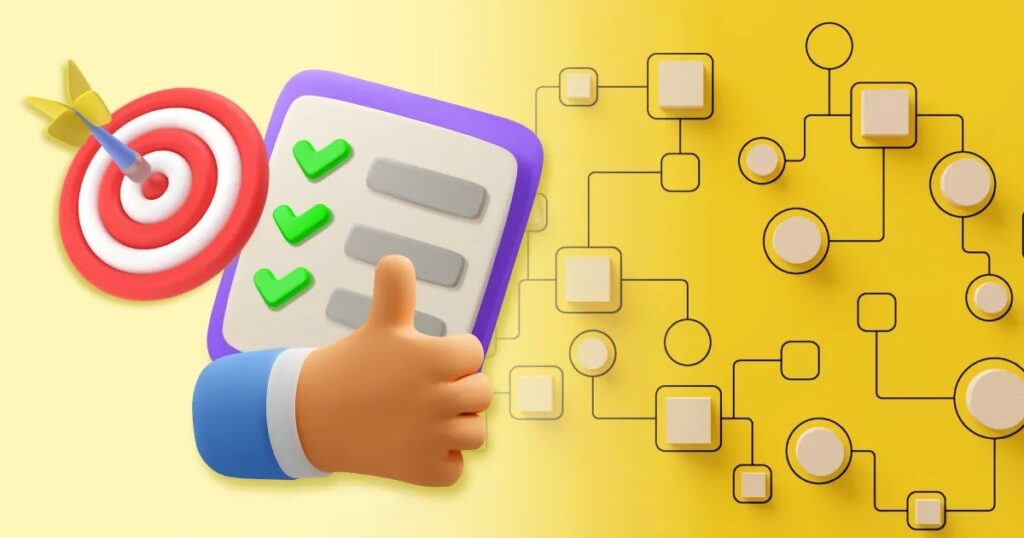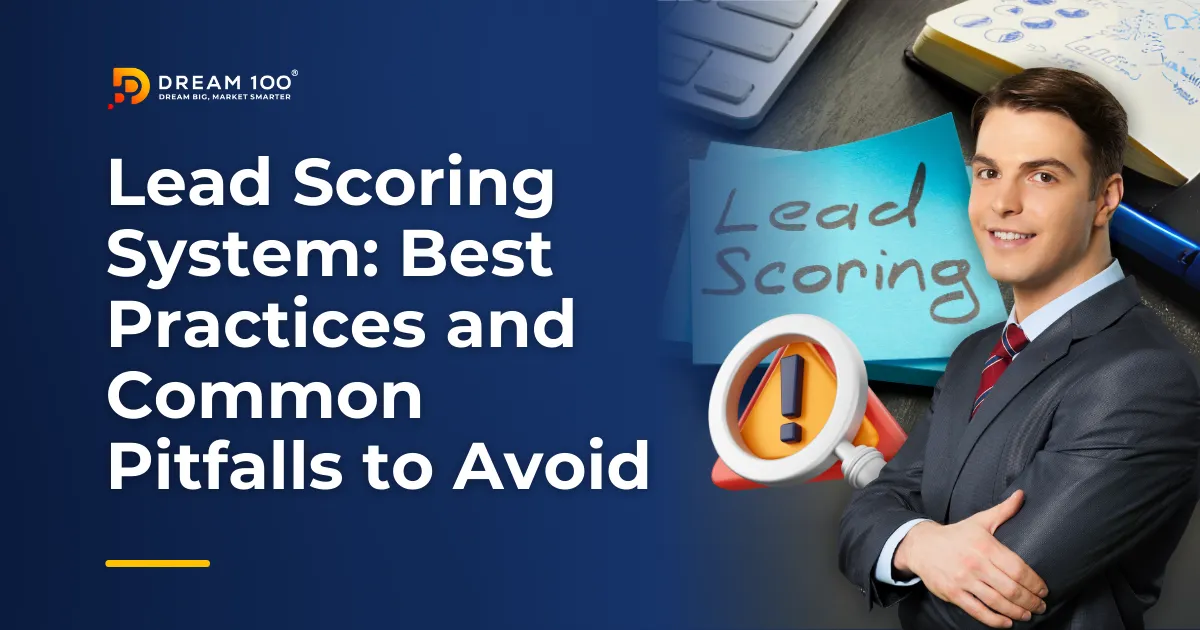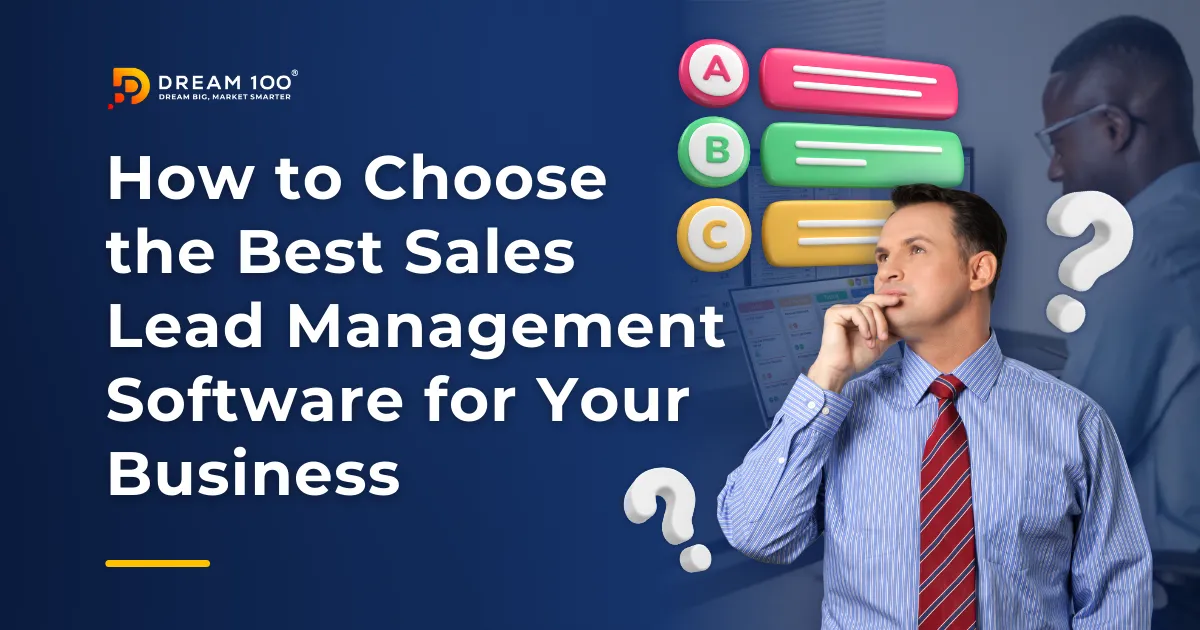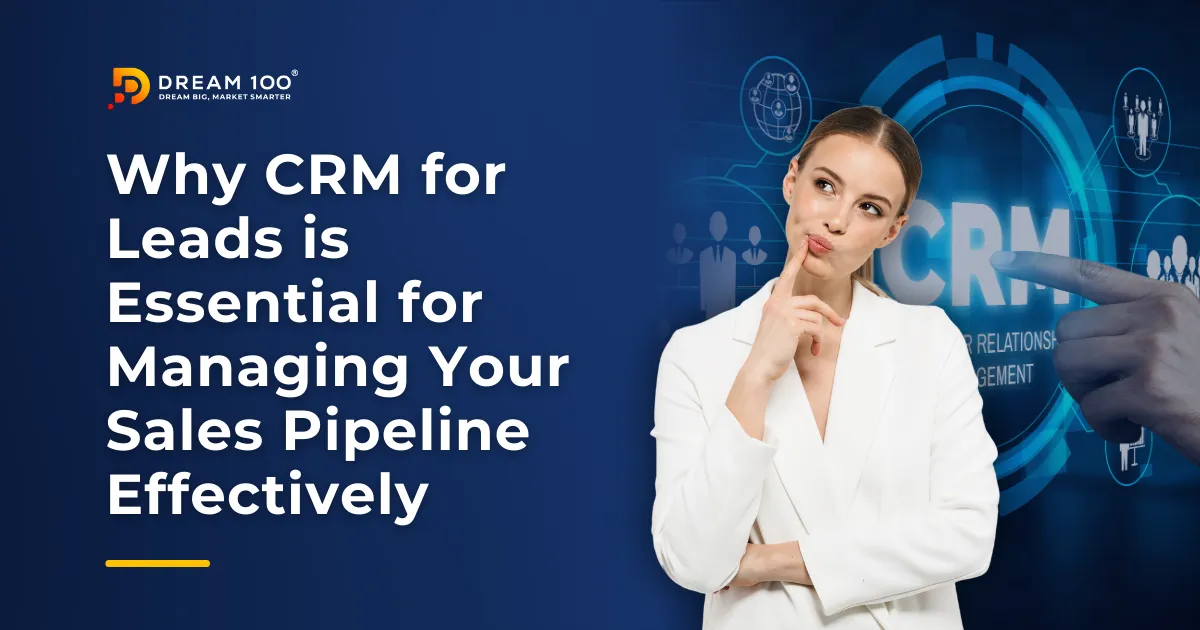An effective lead scoring system can boost your marketing and sales strategies by finding the most promising leads. This system assigns values to each lead based on their interactions with your business, which helps prioritize follow-up efforts. However, many companies struggle with setting up and maintaining a robust lead-scoring model despite its potential benefits.
In this blog, we will explore some of the best practices for optimizing your lead scoring efforts and highlight common pitfalls to avoid. By understanding these essential aspects, you can better tailor your approach to meet your business objectives and improve conversion rates.
Definition and Importance of Lead Scoring Marketing

Lead scoring marketing is a methodology sales and marketing teams implement to rank prospects against a scale that is the perceived value each lead represents to the organization.
This system helps prioritize leads that are most likely to convert into sales by assigning numerical scores to potential customers based on their professional information and interactions with the brand.
The importance of an effective lead scoring system cannot be overstated. It enables marketers to designate their time and resources more efficiently to leads with the highest potential for conversion, thereby increasing the ROI of marketing campaigns.
Lead Scoring Enhances Marketing Automation and Campaign Effectiveness
- Improved Segmentation: The lead scoring system facilitates better segmentation of lead data. By categorizing leads based on their scores, marketing automation tools can deliver more personalized content aligned with the lead’s stage in the buying journey. For instance, high-scoring leads can receive more direct and sales-focused messages, while lower-scoring leads can be nurtured with educational content to build interest and engagement.
- Increased Sales Efficiency: Sales teams benefit immensely from a lead scoring system because it allows them to focus on leads deemed ready to buy. This prioritization ensures that sales professionals are not wasting time on low-quality leads, which speeds up the sales process and boosts productivity.
- Enhanced Feedback Loop: Implementing a lead scoring system creates a feedback chain between marketing and sales teams. As sales teams provide feedback on the quality of leads converted, the marketing team can refine the scoring criteria to better align with actual sales outcomes. This ongoing adjustment process continually improves the effectiveness of both marketing and sales efforts.
- Better ROI Measurement: With a clear lead scoring system, measuring the effectiveness of different marketing strategies and campaigns becomes easier. Marketers can analyze which approaches generate high-scoring leads and adjust their tactics to maximize the return on investment.
By integrating a lead scoring system into marketing automation platforms, businesses can ensure that their marketing efforts are more targeted, efficient, and aligned with their sales objectives. This strategic approach optimizes resource use and significantly enhances the campaign effectiveness.
Integrating CRM Lead Scoring

A CRM lead scoring system is vital in enhancing the functionality of a lead scoring system by centralizing all lead information and interactions.
Integrating a lead scoring system within a CRM allows businesses to automatically update scores based on real-time data captured from customer interactions across various touchpoints, including emails, page visits, and social media engagement.
This integration ensures that the lead scoring system reflects each lead’s most current and comprehensive view, making it indispensable for maintaining accuracy in lead prioritization.
Best Practices for Configuring Lead Scoring in Your CRM System
Implementing a lead scoring system within your CRM involves several best techniques to ensure its effectiveness and efficiency:
- Define Clear Scoring Criteria: Start by establishing clear, objective criteria for scoring leads. This might include actions such as website visits, downloads, or email engagements. Assigning appropriate scores to these actions will require collaboration between marketing and sales to align on what constitutes a qualified lead.
- Automate Data Capture: Utilize the automation features of your CRM to capture relevant data points automatically. This ensures that the lead scoring system is always up-to-date without requiring manual input, which can lead to delays or inaccuracies.
- Set Up Lead Scoring Thresholds: Define thresholds for lead scores that trigger specific actions, such as moving a lead to a sales-ready category or initiating a follow-up. These thresholds help ensure that leads are acted upon at the appropriate time.
- Regularly Review and Adjust Scores: As market conditions and customer behaviors change, reviewing and adjusting the scoring criteria and weights is important. This adaptability helps maintain the relevance and effectiveness of your lead scoring system.
Common Challenges and Solutions in CRM Lead Scoring Integration
Integrating a lead scoring system into a CRM is challenging. Still, these can be effectively managed with strategic solutions:
- Data Quality Issues: Poor data quality can render a lead scoring system ineffective. Regularly clean and update CRM data to ensure accuracy in scoring.
- User Adoption: Resistance to new systems can hinder their effectiveness. To encourage user adoption, provide training, and demonstrate the benefits of the lead scoring system.
- Over-Complexity: Avoid creating overly complex scoring models that are difficult to understand and maintain. Keep the system simple and user-friendly, with clear documentation.
By addressing these challenges and following best practices for CRM integration, businesses can maximize the benefits of their lead scoring system, which will lead to improved sales alignment and more efficient lead management.
Developing Effective Lead Scoring Criteria

The effectiveness of a lead scoring criteria hinges on the robustness of its scoring criteria. To develop these criteria, consider several factors:
- Alignment with Sales Goals: Ensure that the scoring criteria directly correlate with the actions and behaviors that signify a lead’s readiness to purchase. Align these criteria with your organization’s overall sales goals.
- Lead Behavior: Analyze which behaviors typically lead to conversions. These include visiting certain pages on your website, downloading whitepapers, or attending webinars.
- Demographic Information: Consider the lead’s demographic details, such as industry, job title, and company size, as they can be strong indicators of its potential value to your organization.
- Lead Source: The origin of the lead can affect their likelihood to convert. For instance, leads from a targeted campaign might be more valuable than those from generic sources.
- Engagement Level: Frequency and recency of interactions should also be scored, as they provide insight into the lead’s interest level.
Examples of Quantitative and Qualitative Criteria
For a comprehensive lead scoring system, both quantitative and qualitative criteria should be utilized.
Quantitative criteria include the following:
- Number of website visits
- Number of downloads (e-books, case studies, etc.)
- Email open and click-through rates
Qualitative criteria include the following:
- Job title and decision-making capacity
- Fit with the product or service (industry relevance, company size, etc.)
- Quality of interactions (inquiry depth, feedback, etc.)
How to Regularly Update and Refine Scoring Criteria
To maintain the effectiveness of your lead scoring system, regular updates and refinements include:
- Analyze Conversion Data: Regularly review which leads convert and their common characteristics. Use this data to refine your scoring model.
- Solicit Sales Feedback: Regular communication with the sales team can provide insights into how well the lead scoring system works and what changes might be needed.
- A/B Testing: Test different scoring models to see which more accurately predicts lead quality and conversion rates.
- Market Changes: Be responsive to changes in the market or your business model, which might necessitate adjustments in your scoring criteria.
By thoughtfully developing and continuously refining your lead scoring criteria, you ensure that your lead scoring system remains a dynamic and invaluable tool in prioritizing and converting leads.
Automating and Streamlining the Scoring Process

Leveraging the adequate tools and technologies is crucial to implementing a lead scoring system. These tools automate the scoring process, ensuring that scores are assigned based on predefined criteria without manual intervention. Key technologies include:
- CRM Software: Most modern CRM systems have built-in lead scoring capabilities. They can track interactions and automatically update scores based on set rules.
- Marketing Automation Platforms: Tools like HubSpot, Marketo, and Pardot specialize in automating marketing tasks, including lead scoring. They can integrate with CRM systems to provide a seamless flow of data.
- Analytics Tools: Advanced analytics platforms can analyze user behavior on your page and social media, feeding this information into your lead scoring system to update real-time scores.
- AI and Machine Learning: Some sophisticated systems use AI to dynamically adjust scoring criteria based on patterns that predict lead conversion, enhancing the accuracy and adaptability of your lead scoring system.
Benefits of Automation in Accuracy and Efficiency
Automating your lead scoring system offers significant benefits, particularly in terms of accuracy and efficiency:
- Increased Accuracy: Automation reduces human errors and ensures that every interaction is captured and accurately scored according to the latest criteria.
- Enhanced Efficiency: Automated lead scoring systems process large volumes of leads quickly, freeing up marketing and sales teams to focus on strategy and engagement rather than manual scoring.
- Consistency: Automation ensures that the lead scoring system is applied consistently across all leads, which is crucial for comparing and prioritizing them effectively.
- Scalability: An automated lead scoring system can easily scale with your business, handling increasing amounts of leads without needing proportionate increases in staff or resources.
By incorporating automation into your lead scoring system, you can significantly boost the effectiveness of your lead management efforts, driving better alignment between marketing and sales and ultimately boosting conversions.
Conclusion
Mastering the lead scoring system is not just about implementing technology; it’s transforming how you prioritize and engage with potential customers. Throughout this blog, we’ve explored how a well-defined and efficiently automated lead scoring system can revolutionize your marketing and sales efforts.
By embracing the best practices, tools, and strategies discussed, you can ensure that your lead scoring system identifies the most promising leads and contributes to a streamlined, efficient sales process.
Are you ready to elevate your lead management to the next level with an optimized lead scoring system? Dream 100® is here to help. Visit us at our contact page to learn more and get started on refining your lead scoring strategies today. Let’s make every lead count!




